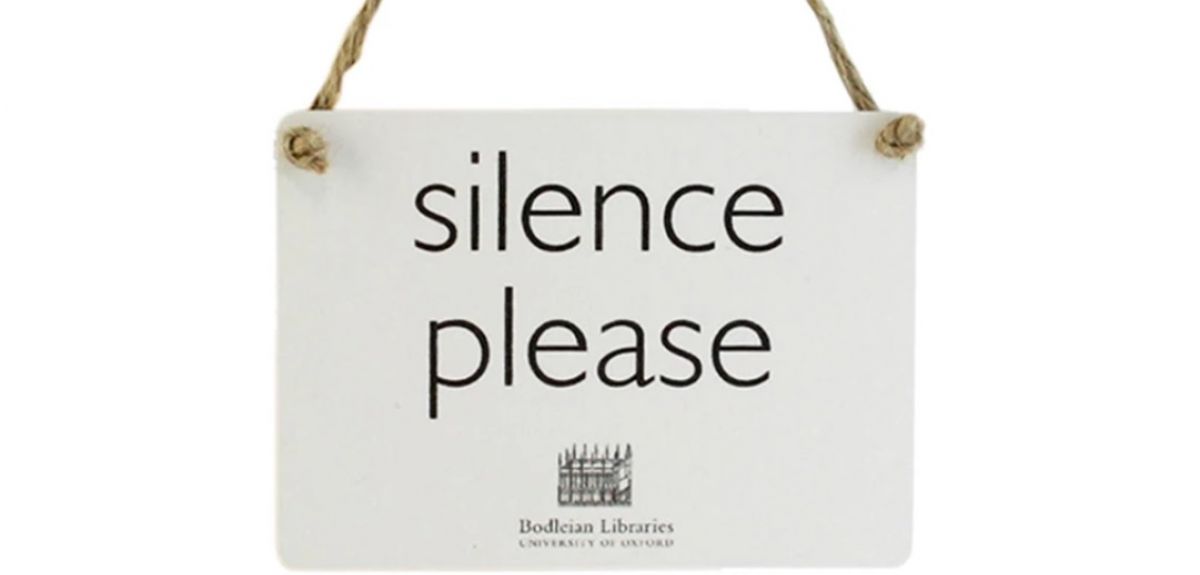
Bodleian Libraries
Into Silence: making music out of empty spaces
Convocation House hosted a rather unique hour-long concert last month. It included works from Joseph Haydn, Arvo Part, Nils Frahm, Philip Glass and Peteris Vasks. The most singular thing about it? Four of the pieces were completely silent…
The concert was the brain child of the Silence Hub, a research group in The Oxford Research Centre in the Humanities (TORCH). The trio at the Hub's heart are Professor Kate McLoughlin of the Faculty of English, Dr Willem Kuyken, Ritblat Professor of Mindfulness and Psychological Science, and Dr Suzan Meryem Rosita Kalayci of the Faculty of History.
The event they organised brought members of the SCANJ string quartet together with cellist Jacqueline Josephine. As Professor Kate McLoughlin said afterwards, 'I hoped to put on a unique programme in which the audience would be confronted by performances of silence by people who are used to playing in public.'
'They usually perform music, of course,' she added.
The performers rose to the challenge of performing the silent pieces alongside more traditional music (though the pieces chosen were still quiet, contemplative or contained meaningful pauses). One attendee, Sarah Bedford, said: 'Particularly notable were the parts where the musicians did not "play" anything, and yet were performing the piece and sat with full attention on performing through the silence.'
Sarah was also complimentary of Dr Kuyken’s contribution in guiding the audience through the event. As Professor of Mindfulness and Psychological Science, he was well equipped to use his expertise to foster that sense of peace and contemplation. Sarah added this was especially helpful as 'having the questions from the research team like "what words does 'silence' conjure up for you?" meant that you were able to mull that over in the quietness, rather than letting your thoughts wander to other things.'
Feedback was gathered from the audience, with about two thirds responding positively. Professor McLoughlin hoped the event would 'create an event of silence, quietness and peacefulness that would help people enter a calm, reflective mood'. And many did report a sense of tranquillity that came with the event.
A debrief was also held the day after with a few audience members. Dr Suzan Meryem Rosita Kalayci said this was her favourite part. 'The conversations that emerge are really valuable,' she said. 'One audience member said something about silence being an unoccupied space, a threshold of some sort. That struck a chord with me.'
Each member of the Silence Hub approaches the concept of silence from a different angle. Dr Kalayci has studied the role of silence in the history of the Eastern Mediterranean. Her research informs some of the Hub's future activities, with the Hilary Term featuring events on the theme Silence & Syria.
'I have lived in Syria for many years, so the theme is very close to my heart,' she said. 'There is a lot to be said, especially about our silence on the war in Syria. I think silence is a very powerful tool of protest because, like a full stop at the end of a sentence, it offers the chance of a new thought.'
There are already plans in development for an essay competition for young adults in Arabic, English and Kurdish; a pop-up library with books about Syria and talks by writers from Syria; a book of collected essays about Syria; and a collaboration with the artist Erkan Özgen.
The Syria events will also include poetry readings, relating to Professor McLoughlin’s work on the role of silence in literature, which also links into silence in conflict. Her last book was 'about the figure of the war veteran in literature and culture - what philosophical ideas he stands for in literary works - and the last chapter was about veterans who can't or won't speak about the wars they have been in.'
By interspersing poetry with contemplative silence, the readings should raise questions about some of Professor McLoughlin's key ideas that she’s also exploring in a book about silence in literature: 'First, what are we talking about when we talk about silence (in other words, what does silence mean)? And second, why is silence so powerful?'
For more details of news and future events, keep an eye on the Silence Hub’s website.